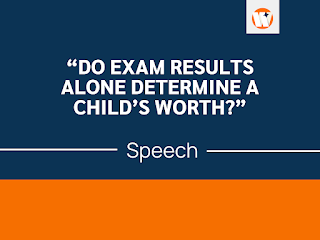How to manage a good relationship with your child in his or her teenage
What is teenage
A teenager, or teen, is a person who falls within the ages of 13 to 19 years old.
Another word for a teenager is an adolescent.
Adolescence is a transitional stage of physical and psychological development that generally occurs during the period from puberty to legal adulthood. Adolescence is usually associated with the teenage years, but its physical, psychological or cultural expressions may begin earlier and end later
It is the period of transition between childhood and adulthood. It includes some big changes—to the body, and to the way a young person relates to the world.
Challenges of the teenager
Only a few decades ago, the most common problems teens faced were finding a career path and starting a family. In fact, the word “teenager” wasn’t even a thing until the 1920s. Today, however, teens are facing problems unique to our time
Here are the 3 most common problems teens face in 2020
1), Acceptance
Even the most self-assured person struggles with acceptance from time to time. However, teens have it especially hard, due to their lack of maturity and perspective. The best thing we can do is offer parental acceptance. A recent study published in the journal Plus One showed that there was a significant link “between children’s psychological maladjustment and perceived paternal and maternal rejection.”
2). Stress
The pressures teens face from school, parents and peers, can create ongoing patterns of stress. Being stuck at home and away from regular life adds to that feeling. It’s imperative that we help them deal with life’s stresses in a few intentional ways:
*Help them establish healthy boundaries.
*Teach them how to prioritize to simplify their life.
*Create a safe atmosphere at home.
*Let them talk about their feelings openly.
3). Depression and Anxiety
Perhaps, more than ever before, teens are battling depression and anxiety. Some studies show depression is linked with social media. Regardless of the source, it’s crucial for parents to watch for the dangerous warning signs of depression and anxiety. Find a trustworthy doctor and consider therapy if your teen shows signs of ongoing or worsening symptoms.
How to manage good relationship with your child in Teenage
As any parent will know — or at least will have been warned — a child’s teenage years can be some of the toughest.
How tp build a healthy relationship with your Teenager
A whirlwind combination of puberty, hormones, high school years, and the growing need for independence can be a challenge for any parent. In a household with a teenager, every day can seem like a battle — sometimes over the smallest things. As a parent, you want to be able to love and guide your child like you always have, but you need to understand that just as they’re changing, your relationship with them needs to change as well. These are some of the most formative years of their lives, so it’s good for them to know that their parents are there for them, and are willing to realize that they have a young adult who deserves their respect and guidance.
Tips for communicating with your teen
The teenage years have a lot in common with the terrible twos. During both stages our kids are doing exciting new things, but they’re also pushing boundaries (and buttons) and throwing tantrums. The major developmental task facing both age groups is also the same: kids must pull away from parents and begin to assert their own independence. No wonder they sometimes act as if they think they’re the center of the universe.
This means that having a healthy and trusting parent-child relationship during the teenage years is more important than ever. Staying close isn’t easy, though. Teens often aren’t very gracious when they are rejecting what they perceive to be parental interference. While they’re an open book to their friends, who they talk to constantly via text messages and social media, they might become mute when asked by mom how their day went. A request that seemed reasonable to dad may be received as a grievous outrage.
1. Listen. If you are curious about what’s going on in your teen’s life, asking direct questions might not be as effective as simply sitting back and listening. Kids are more likely to be open with their parents if they don’t feel pressured to share information. Remember even an offhand comment about something that happened during the day is her way of reaching out, and you’re likely to hear more if you stay open and interested — but not prying.
2. Validate their feelings. It is often our tendency to try to solve problems for our kids, or downplay their disappointments. But saying something like “She wasn’t right for you anyway” after a romantic disappointment can feel dismissive. Instead, show kids that you understand and empathize by reflecting the comment back: “Wow, that does sound difficult.”
3. Show trust. Teens want to be taken seriously, especially by their parents. Look for ways to show that you trust your teen. Asking him for a favor shows that you rely on him. Volunteering a privilege shows that you think he can handle it. Letting your kid know you have faith in him will boost his confidence and make him more likely to rise to the occasion.
If applied wisely, these things can really help manage and improve relationship with your child in his or her teenage



Very handy tips. Thanks for sharing.
ReplyDeleteSuch an apt post for me
ReplyDelete